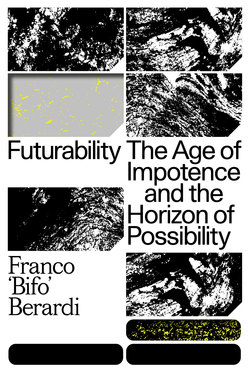Читать книгу Futurability - Franco "Bifo" Berardi - Страница 10
На сайте Литреса книга снята с продажи.
2 Humanism, Misogyny and Late Modern Thought
ОглавлениеHumanism as Potency and Freedom
An exhaustive definition of humanism is beyond my scope here, but by the word ‘humanism’ we generally refer to a philosophical and artistic movement that appeared first in Italy in the fifteenth century, then spread throughout Europe. However, in this context, I refer particularly to a concept that widely defines the identity of European culture in modern times.
Here, I propose to consider humanism as the assertion of freedom and the potency of man.
According to Leon Battista Alberti, man has been created for work (opera), and usefulness is humanity’s determination. The humanist emphasis on activity and enterprise (intrapresa) implies two conceptual dimensions: freedom and potency of action.
The notion of freedom is not, here, intended in the juridical sense: it is not freedom from the law or from political constriction. It is instead ontological freedom, independence from predetermined forms, and, therefore, the possibility to create forms that do not pre-exist in the mind of God.
Humanism emancipates human history from the presence of a God no longer needed to explain human action. The form of things does not depend on the will of God, but on the action of man. Ernst Bloch, in his book on the philosophy of the Renaissance, speaks of the birth of the ‘technical utopia’.
